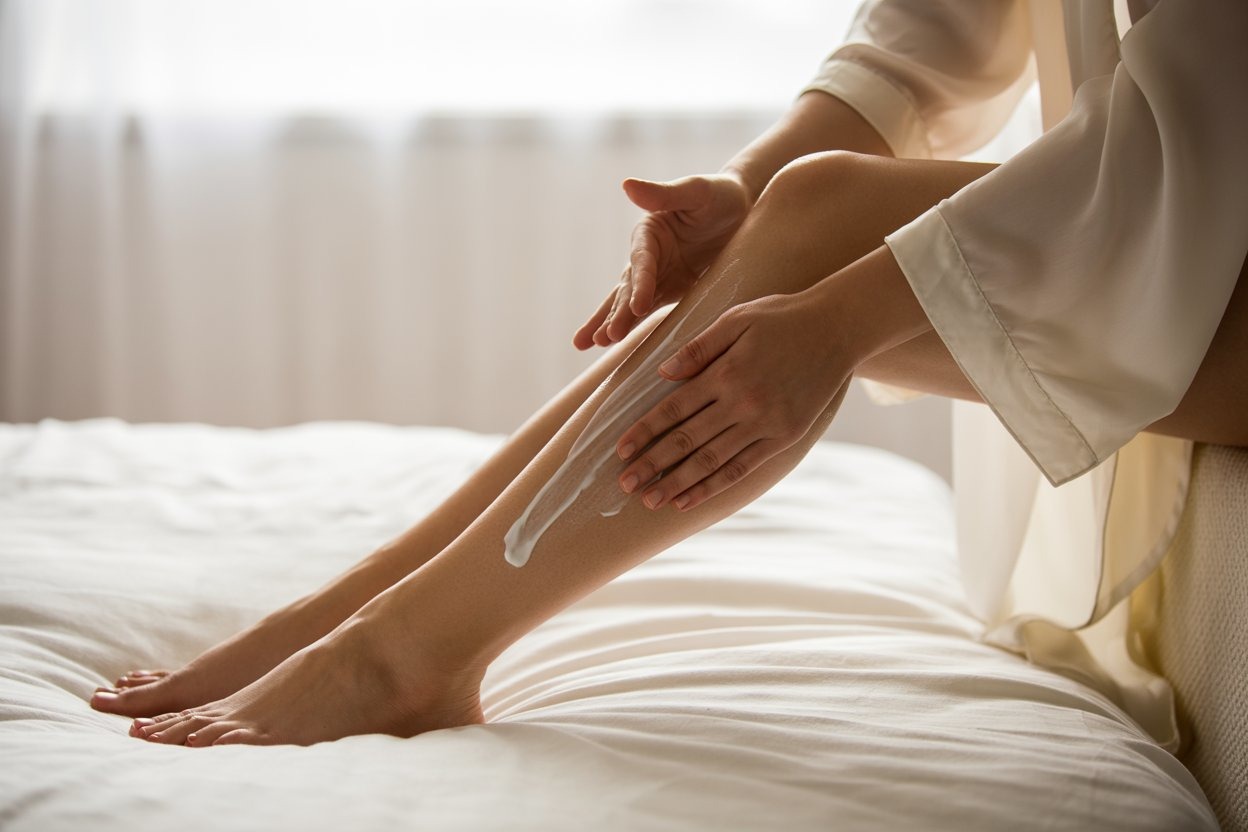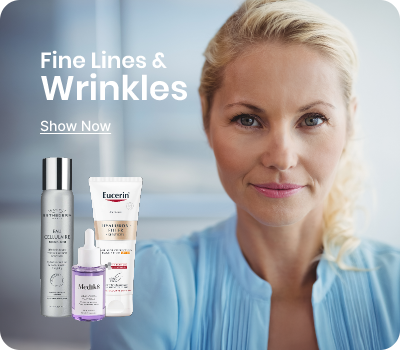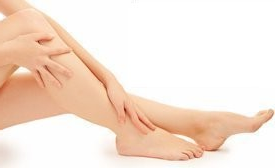
Living with psoriasis or eczema can feel like an unending cycle of flare-ups, irritation, and discomfort, yet effective management is entirely possible with the right approach. These chronic skin conditions are driven by immune system imbalances and inflammation, which manifest as redness, dryness, scaling, and persistent itching, often affecting confidence and daily comfort. Recognising personal triggers, and implementing a dermatologist-backed body care routine are essential first steps in regaining control over skin health. This guide provides expert insights into building a comprehensive body care regimen that strengthens the skin barrier, calms inflammation, and encourages both physical comfort and emotional confidence, empowering those with psoriasis and eczema to achieve healthier, more resilient skin.
The Science Behind Psoriasis and Eczema
What Happens Beneath The Skin: Inflammation And Immune Response
Both psoriasis and eczema are driven by immune system misfires. In psoriasis, the body accelerates skin cell turnover, producing thick, scaly plaques. Eczema, meanwhile, arises from a compromised skin barrier, making the skin vulnerable to allergens, irritants, and microbial invasion. In both, inflammation becomes the thread that weaves irritation and sensitivity into daily life.
Key Differences Between Psoriasis And Eczema Explained Clearly
While they may appear similar, the two conditions differ significantly. Psoriasis often creates sharply defined patches of silvery scales, commonly on elbows, knees, and the scalp. Eczema typically manifests as red, itchy, and inflamed areas that may weep or crust, particularly in skin folds. Understanding these distinctions is crucial in tailoring the right regimen.
Common Triggers That Worsen Flare-Ups
Triggers are as individual as fingerprints, yet common culprits include stress, weather extremes, allergens, and harsh chemicals. For psoriasis, even minor skin trauma can spark lesions in a phenomenon known as the Koebner effect. For eczema, fragrance-heavy products or dry winter air may quickly set off itching and irritation.
Why Body Care is Essential in Managing Skin Conditions
The Role Of Hydration In Repairing The Skin Barrier
The skin barrier acts as a protective shield, sealing in essential moisture while keeping allergens and irritants at bay. When this barrier weakens, it becomes porous and prone to damage, making hydration its most powerful ally. Applying moisturisers rich in ceramides, lipids, and humectants restores this barrier, filling in microscopic gaps and enhancing resilience. Regular hydration smooths rough patches, eases tightness, and prevents the painful cracking that often accompanies flare-ups.
Preventing Infections And Complications With Proper Routines
Skin that is broken or excessively dry becomes an open invitation for bacteria, fungi, and viruses. For individuals with chronic skin conditions, this can escalate into secondary infections that worsen discomfort and delay healing. A diligent routine—cleansing gently, moisturising promptly, and avoiding harsh irritants—fortifies the skin against these risks. Consistency ensures that vulnerable areas remain protected rather than exposed.
Long-Term Benefits Of Consistency In Care
The true power of body care lies in its cumulative effect. Just as physical fitness depends on regular exercise, healthy skin thrives on daily, disciplined attention. Over weeks and months, consistent care reduces the frequency and severity of flare-ups, enhances skin stability, and fosters a sense of control. The reward is not only healthier skin but also the confidence that comes with visible improvement and sustained comfort.
Dermatologist Insights: The Foundations of an Effective Routine
Gentle Cleansing Habits That Avoid Irritation
Cleansing is the first step in any routine, yet it is often where mistakes are made. Harsh soaps and cleansers can strip away the skin’s natural oils, leaving it dry, tight, and more susceptible to inflammation. Dermatologists recommend switching to products that are fragrance-free, dye-free, and pH-balanced. These formulations clean without disrupting the delicate lipid layer that protects the skin. A good rule of thumb is to treat the skin as you would a delicate fabric—avoid anything too aggressive, and keep contact short and gentle.
Choosing Dermatologist-Recommended Moisturisers And Emollients
For those with chronic skin conditions, richer formulations are typically more effective. Dermatologists often recommend products that contain:
- Ceramides, which help restore the skin’s barrier function.
- Petrolatum, known for its ability to seal in moisture.
- Colloidal oatmeal, which soothes irritation and reduces itching.
- Glycerin and hyaluronic acid, which draw water into the skin.
While lighter lotions may provide temporary relief, creams and ointments offer longer-lasting protection and are especially beneficial during colder months or flare-ups.
The Importance Of Daily Application And Timing
Consistency transforms good habits into results. Dermatologists stress that moisturisers should be applied at least once daily, ideally more often during flare-ups. The most effective moment is immediately after bathing, when the skin is still damp—this traps water in the skin and amplifies hydration. Over time, disciplined daily application builds barrier strength, reduces sensitivity, and fosters healthier, more resilient skin.
Cleansing with Care: Best Practices for Sensitive Skin
Cleansing is a daily ritual that can either support or sabotage sensitive skin. For those managing psoriasis or eczema, the goal is to purify without provoking. Every step of cleansing—from the type of cleanser chosen to the way the skin is dried afterward—plays a role in maintaining balance. Small adjustments, guided by dermatologist-backed recommendations, can make the difference between a routine that calms the skin and one that exacerbates irritation.
Avoiding Harsh Soaps And Fragrances
Many commercial soaps and body washes are laden with ingredients that strip the skin of its protective oils. Fragrance, alcohol, and sulfates are some of the most notorious culprits, leaving the skin barrier weakened and more reactive. Instead, dermatologists recommend opting for gentle, hypoallergenic cleansers that are formulated for sensitive skin. Look for products labelled as fragrance-free and pH-balanced. Choosing the right cleanser can help maintain comfort and reduce the likelihood of flare-ups. Some dermatologist-approved alternatives include:
- Cream-based cleansers that add hydration while cleansing.
- Oil-based cleansers that remove impurities without drying.
- Syndet bars (synthetic detergent bars) designed for sensitive skin.
The Benefits Of Lukewarm Showers Over Hot Water
While hot showers may feel soothing, they are detrimental to sensitive skin. Heat strips away natural oils, intensifies dryness, and can leave the skin feeling tight and itchy. Lukewarm water, on the other hand, provides effective cleansing while maintaining the skin’s equilibrium. To enhance the benefits of lukewarm showers:
- Keep shower time brief—around 10 minutes or less.
- Avoid excessive scrubbing or loofahs that can irritate skin.
- Finish with a gentle, hydrating cleanser instead of soap.
How To Gently Pat Dry Without Causing Damage
Even after cleansing, the way the skin is dried matters. Rubbing with a towel creates friction, which can disrupt healing skin and trigger flare-ups. A better approach is to use a soft cotton towel and lightly pat the skin dry, leaving a thin layer of moisture behind. This residual dampness becomes invaluable when followed immediately by a moisturiser, as it helps seal hydration into the skin for longer-lasting comfort.
Moisturising Like a Pro: Locking in Hydration

Moisturising is not just a finishing touch in body care—it is the foundation of managing psoriasis and eczema. Without proper hydration, the skin barrier remains weak, flare-ups intensify, and the risk of discomfort increases. Mastering the art of moisturising involves understanding how to apply products effectively, which ingredients to look for, and how often to reapply based on the skin’s needs.
Layering Techniques For Maximum Absorption
One of the most effective strategies is layering. Applying a lighter cream or lotion first allows humectants to draw water into the skin. Following this step with an ointment creates an occlusive layer that locks in the hydration, preventing water loss throughout the day. This technique is especially helpful for areas prone to severe dryness, such as elbows, knees, and hands.
Recommended Ingredients: Ceramides, Hyaluronic Acid, Colloidal Oatmeal, Urea, Avocado, And Jojoba Oils
These ingredients work synergistically to repair the skin barrier, lock in hydration, and soothe irritation, creating a comprehensive approach to skin health. Ceramides are a cornerstone, restoring and strengthening the skin’s protective barrier, while hyaluronic acid functions as a powerful humectant, drawing moisture deep into the skin and maintaining long-lasting hydration. Colloidal oatmeal adds a calming element, reducing inflammation and relieving the persistent itching that often accompanies chronic skin conditions.
Urea provides dual benefits by gently exfoliating dead skin cells and enhancing the skin’s water retention, resulting in smoother, softer texture without irritation. Natural oils such as avocado and jojoba bring additional nourishment: avocado oil is rich in fatty acids and antioxidants that replenish and fortify the skin barrier, while jojoba oil closely mimics the skin’s own sebum, providing lightweight, non-greasy hydration that prevents moisture loss. For extra protection, thicker occlusive agents like shea butter or petrolatum seal in hydration and shield the skin from environmental aggressors.
How Often To Reapply During Flare-Ups And Dry Seasons
Moisturising is not a one-time event—it requires regularity. During flare-ups, creams and ointments may need to be applied multiple times a day to maintain comfort. Seasonal adjustments are also key; in winter, heavier products and more frequent applications are essential, while in humid months, lighter formulations may suffice. Consistency ensures that the skin barrier remains strong and resilient year-round.
Targeted Treatments Backed by Dermatologists
Over-The-Counter Options For Mild Symptoms
For those experiencing mild irritation, accessible remedies can provide meaningful relief. Hydrocortisone creams are often the first line of defence, reducing redness and calming the immune response in localised areas. Anti-itch lotions, especially those containing colloidal oatmeal or menthol, offer additional comfort by easing the constant urge to scratch. These options are most effective when used early at the first sign of a flare.
Prescription Creams And Ointments Explained Simply
When over-the-counter options are not sufficient, dermatologists may prescribe stronger treatments tailored to the individual. Corticosteroids remain a cornerstone, working to suppress inflammation quickly and effectively. Calcineurin inhibitors, such as tacrolimus or pimecrolimus, are steroid-sparing alternatives that reduce immune activity without the long-term risks of thinning skin. Vitamin D analogues, often used for psoriasis, help regulate skin cell turnover and reduce plaque formation. These medications target underlying mechanisms rather than simply masking symptoms.
Light Therapy And When It’s Recommended
For moderate to severe cases, phototherapy—also known as light therapy—can be transformative. This treatment involves exposing the skin to controlled doses of ultraviolet light under medical supervision. In psoriasis, it slows the overproduction of skin cells, while in eczema it reduces inflammation and itching. Light therapy is typically recommended when topical treatments fall short, offering a safe and effective alternative for long-term management.
Lifestyle Adjustments That Support Healthy Skin
The way we live day to day—how we manage stress, what we eat, and how much rest we get—directly influences the health of our skin. Psoriasis and eczema are conditions with strong ties to internal balance, meaning that lifestyle changes can be just as powerful as topical treatments in reducing flare-ups and enhancing overall well-being.
Stress Management And Its Link To Flare-Ups
Stress is one of the most common triggers for both psoriasis and eczema. When the body is under pressure, stress hormones like cortisol fuel inflammation, making flare-ups more likely and often more intense. Integrating calming practices into daily life helps regulate this response and protect the skin from unnecessary strain. Simple yet effective strategies include:
- Meditation or mindfulness exercises to quiet the mind and ease tension.
- Yoga or gentle stretching to combine relaxation with physical movement.
- Deep breathing techniques that can be practised anywhere to reduce stress quickly.
- Journaling or creative outlets to release emotional pressure in a healthy way.
Diet Considerations: Foods That May Help Or Hinder Skin Health
Though there is no single “eczema diet” or “psoriasis cure” through food, diet undeniably influences inflammation. Anti-inflammatory foods such as fatty fish rich in omega-3s, leafy greens, whole grains, and colourful berries can support skin resilience. On the other hand, processed foods, refined sugar, and alcohol often worsen flare tendencies and should be limited.
The Importance Of Sleep In Skin Repair And Recovery
Sleep is the body’s natural repair cycle. During deep rest, skin regenerates, inflammation is reduced, and the immune system is strengthened. Insufficient sleep not only heightens stress but also slows healing, compounding irritation and prolonging flare-ups. Making sleep a priority is one of the simplest yet most effective lifestyle shifts for healthier skin.
Clothing, Environment, and Daily Habits
For sensitive skin, daily choices in clothing, indoor environment, and laundry practices play a crucial role in comfort and flare prevention. Natural, breathable fabrics like cotton allow airflow and reduce irritation, while rough materials such as wool can provoke itching and discomfort.
Maintaining balanced indoor humidity and temperature is equally important—using a humidifier helps counteract dry air, and avoiding extreme heat or cold protects the skin from additional stress. Laundry habits also matter: opting for mild, fragrance-free detergents and double-rinsing clothes minimises residue that can cling to fabric and aggravate sensitive skin, creating a gentler environment that supports overall skin health.
Building Confidence Through Skin Care
Living with visible skin conditions can significantly impact self-image, making emotional care as important as physical treatment. Developing resilience involves practising self-compassion and viewing the condition as just one aspect of life rather than its defining feature. Finding support through groups or communities of individuals facing similar challenges can alleviate feelings of isolation, providing encouragement, shared experiences, and practical tips.
Equally important is celebrating progress, no matter how small; while skin may not always appear flawless, each improvement reflects strength, discipline, and the effectiveness of consistent care, reinforcing confidence and a positive mindset.
Conclusion: Achieving Healthier Skin with Expert Guidance
Managing psoriasis and eczema is a journey that blends science, self-care, and patience. While these chronic conditions can be challenging, adopting dermatologist-backed routines can dramatically improve skin health and comfort. Consistency in daily habits, awareness of triggers, and thoughtful use of proven ingredients strengthen the skin barrier, reduce flare-ups, and support long-term resilience. Beyond the physical benefits, caring for your skin nurtures confidence and emotional well-being, empowering you to approach life with greater comfort and assurance. Take control today by committing to a personalised, dermatologist-approved body care regimen and embrace the opportunity to restore both your skin and your confidence.





